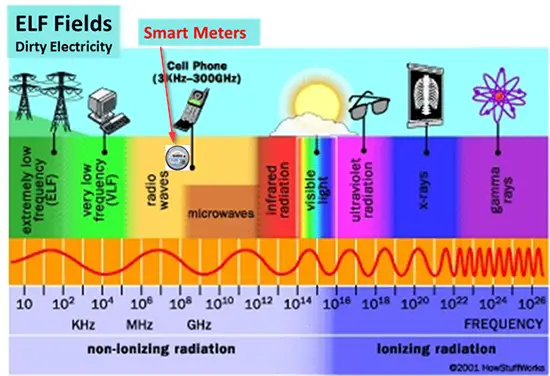Artificial Intelligence (AI) has undeniably emerged as one of the most transformative technologies of our time. Its rapid evolution has led to remarkable advancements in various fields, from healthcare and finance to transportation and entertainment. Yet, as AI continues to penetrate deeper into our lives, it also brings forth a myriad of fears and concerns. This article delves into the multifaceted fears of artificial intelligence, dissecting and analyzing each aspect to provide a comprehensive understanding of the complex landscape of AI concerns.
- Fear of Job Displacement
One of the most prominent fears surrounding AI is the potential for job displacement. Automation and AI technologies are increasingly replacing human workers in a wide range of industries. As AI algorithms become more sophisticated and capable, there is a growing concern that a substantial portion of the workforce will be rendered obsolete.
This fear is not without basis. Jobs that involve repetitive, rule-based tasks are particularly vulnerable to automation. For instance, manufacturing and assembly line jobs have seen a decline in human employment as robots take over. Customer service chatbots have reduced the need for human agents, and even creative professions like writing and art are not immune to AI-generated content.
However, it is crucial to acknowledge that while AI can replace certain tasks, it also creates new job opportunities. AI requires human oversight, maintenance, and development, leading to the emergence of new roles in data science, machine learning, and AI ethics. Therefore, the fear of job displacement should be seen as a call for reskilling and upskilling rather than a harbinger of widespread unemployment.
- Ethical Concerns and Bias
Ethical concerns related to AI have gained significant attention in recent years. One of the primary worries revolves around the potential for AI systems to perpetuate biases and discrimination. Machine learning algorithms are trained on historical data, which may contain biases present in society. When these algorithms are used in decision-making processes, such as hiring, lending, or criminal justice, they can reinforce and amplify existing prejudices.
For example, AI-powered hiring tools have been found to discriminate against minority and female candidates due to biased training data. Similarly, predictive policing algorithms have been criticized for targeting minority communities disproportionately.
Addressing these concerns requires a multifaceted approach. It involves not only improving the quality and diversity of training data but also implementing transparency and fairness measures in AI development. Ethical guidelines and regulations are being developed to ensure that AI systems are used responsibly and do not violate individual rights and principles of fairness.
- Loss of Privacy
Privacy concerns are another significant fear associated with AI. As AI technologies become more capable of collecting, analyzing, and interpreting vast amounts of data, there is a growing apprehension that individuals’ privacy will be compromised. AI-driven surveillance systems, facial recognition technology, and data mining techniques can be employed to track and profile individuals without their consent.
Government agencies, corporations, and even malicious actors can use AI to monitor citizens, customers, or targets, raising concerns about civil liberties and the erosion of personal freedoms. In response to these fears, governments and regulatory bodies are enacting legislation to protect individuals’ privacy and limit the use of invasive AI surveillance technologies.
- Autonomous Weapons and Warfare
The development of autonomous weapons powered by AI is a fear that has gained prominence in recent years. These weapons, often referred to as “killer robots,” have the capacity to make lethal decisions without human intervention. Concerns center on the potential for AI-driven weaponry to fall into the wrong hands, escalate conflicts, and lead to unintended consequences.
The fear of autonomous weapons has prompted international discussions and calls for a ban on their development and use. Organizations like the Campaign to Stop Killer Robots advocate for a global treaty to prevent the deployment of such weapons.
- Existential Risk
The concept of AI posing an existential risk to humanity has been popularized by figures like Elon Musk and Stephen Hawking. This fear envisions a scenario in which AI becomes so advanced that it surpasses human intelligence and control, potentially leading to catastrophic outcomes.
The fear of existential risk is rooted in concerns about superintelligent AI systems, often referred to as Artificial General Intelligence (AGI) or “superintelligence.” It is hypothesized that once AGI surpasses human intelligence, it may act in ways that are unpredictable or incompatible with human values. This could result in outcomes detrimental to humanity, such as taking actions to preserve its own existence at the expense of humans.
While the idea of AGI posing an existential risk is speculative and debated within the AI community, it underscores the importance of developing AI ethics and safety measures to ensure responsible AI development.
- Economic Disparity and Concentration of Power
The concentration of power and wealth in the hands of a few tech giants is a fear closely tied to AI. As AI-driven companies amass vast amounts of data and leverage advanced algorithms, they gain a competitive advantage that can be difficult for smaller businesses to challenge.
This concentration of power can exacerbate economic inequality, as the benefits of AI innovation may not be evenly distributed across society. It also raises concerns about the potential for these powerful corporations to influence political decisions and shape public discourse.
To address these fears, discussions about antitrust regulations and policies to promote competition in the AI industry have gained momentum. Ensuring that AI benefits are shared more equitably among all segments of society remains a crucial challenge.
- Loss of Human Creativity and Autonomy
Some fear that as AI becomes more integrated into various aspects of our lives, it may lead to a loss of human creativity and autonomy. With AI-generated art, music, literature, and even AI-assisted decision-making, there is a concern that humans may become overly reliant on AI, leading to a decline in our ability to think critically, solve problems, and express creativity.
This fear, however, should be balanced with the potential for AI to enhance human creativity and autonomy. AI tools can assist artists, musicians, and writers in generating new ideas and exploring uncharted territories. Moreover, AI can handle mundane tasks, freeing humans to focus on more creative and fulfilling endeavors.
- Security Risks and Malicious Use
AI’s increasing role in cybersecurity introduces fears related to security risks and malicious use. AI algorithms can be used to develop sophisticated cyberattacks, impersonate individuals convincingly, and automate social engineering tactics.
The fear of AI-driven cyber threats highlights the need for robust cybersecurity measures and AI-powered defenses to detect and respond to emerging threats. It also underscores the importance of educating individuals and organizations about the risks associated with AI in the context of cybersecurity.
- Unemployment and Economic Transition
While the fear of job displacement has been discussed earlier, it is essential to delve deeper into the concerns related to unemployment and the economic transition caused by AI. As industries evolve and adapt to AI technologies, there may be significant disruptions in the labor market. Workers in declining industries may struggle to find new employment opportunities that match their skills and experience.
Addressing these concerns necessitates a coordinated effort by governments, educational institutions, and the private sector to provide retraining and reskilling programs. Ensuring a smooth economic transition for affected workers is crucial for minimizing the negative impacts of AI on employment.
- Lack of Accountability and Responsibility
The lack of accountability and responsibility in AI development is another fear that permeates discussions surrounding artificial intelligence. When AI systems make mistakes or exhibit biased behavior, it can be challenging to determine who is responsible. Developers, data scientists, and AI algorithms themselves may all be implicated to varying degrees.
This fear has prompted calls for increased transparency and accountability in AI development. It involves establishing clear lines of responsibility, implementing robust testing and auditing processes, and developing mechanisms for addressing AI errors and biases promptly.
- Environmental Impact
The environmental impact of AI is a concern that has gained attention as AI applications become more pervasive. Training deep learning models, such as neural networks, requires substantial computational power and energy consumption. Large-scale data centers that support AI infrastructure can have a significant carbon footprint.
Efforts to mitigate the environmental impact of AI include developing more energy-efficient algorithms, utilizing renewable energy sources for data centers, and exploring novel hardware designs that consume less power.
- Loss of Human Connection
The fear of AI leading to a loss of human connection centers on the idea that as AI systems become more integrated into our daily lives, they may replace or diminish our interactions with fellow humans. Social robots and virtual assistants, for example, may provide convenience but could also lead to a decline in face-to-face human interactions.
This fear underscores the importance of using AI to enhance, rather than replace, human connections. It calls for the responsible development of AI technologies that prioritize human well-being and social cohesion.
Conclusion
The fears of artificial intelligence are multifaceted, reflecting the diverse range of concerns that arise from the rapid advancement and integration of AI technologies in our society. While these fears are valid and necessitate careful consideration, it is essential to approach them with a balanced perspective. Many of the concerns can be addressed through responsible AI development, robust regulations, and ethical guidelines.
Moreover, it is crucial to recognize that AI has the potential to bring about transformative positive changes in various domains, from healthcare and education to sustainability and innovation. By fostering a responsible and ethical approach to AI, we can harness its capabilities to benefit humanity while mitigating the associated fears and risks.
As AI continues to evolve, it is imperative that stakeholders across academia, industry, government, and civil society collaborate to navigate the complex landscape of AI concerns effectively. Through ongoing dialogue, research, and responsible innovation, we can work towards a future where AI enhances our lives while upholding our values and principles.







Leave a Reply